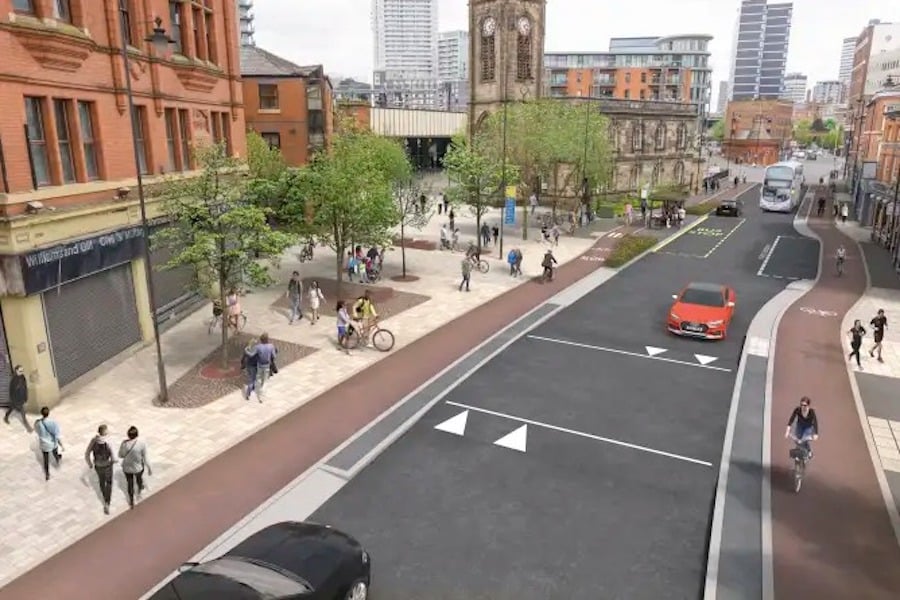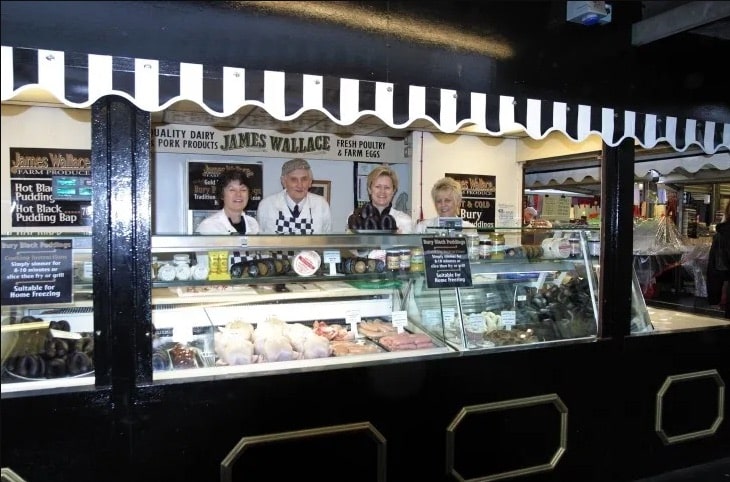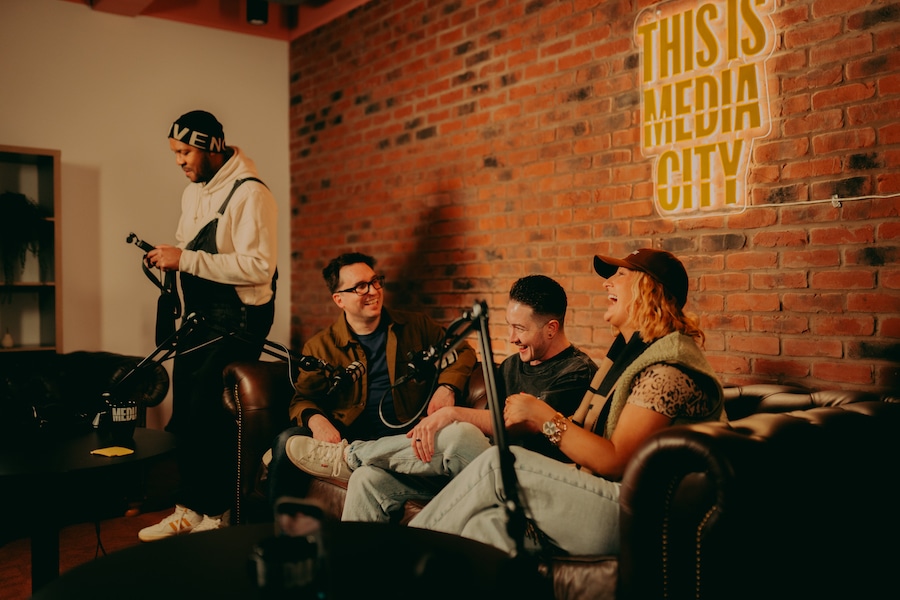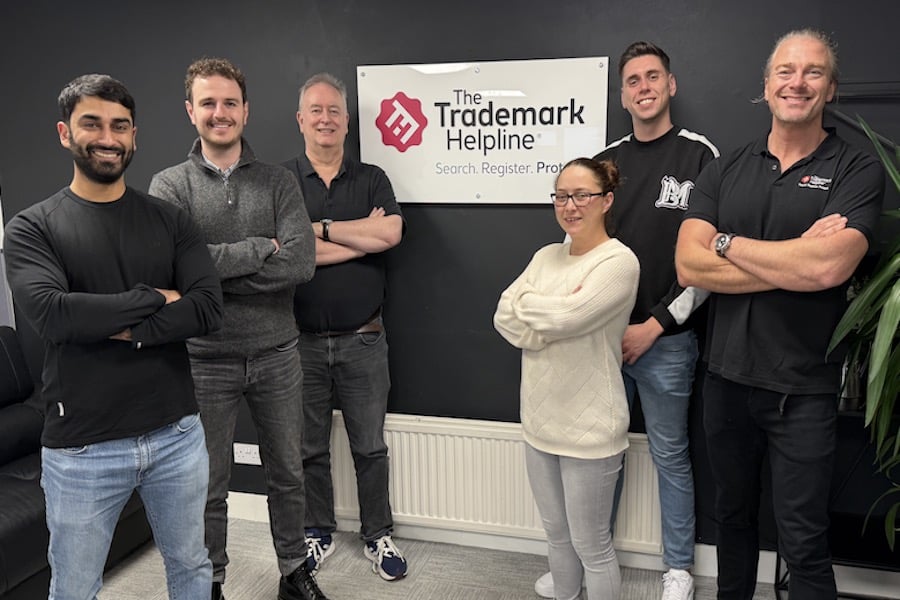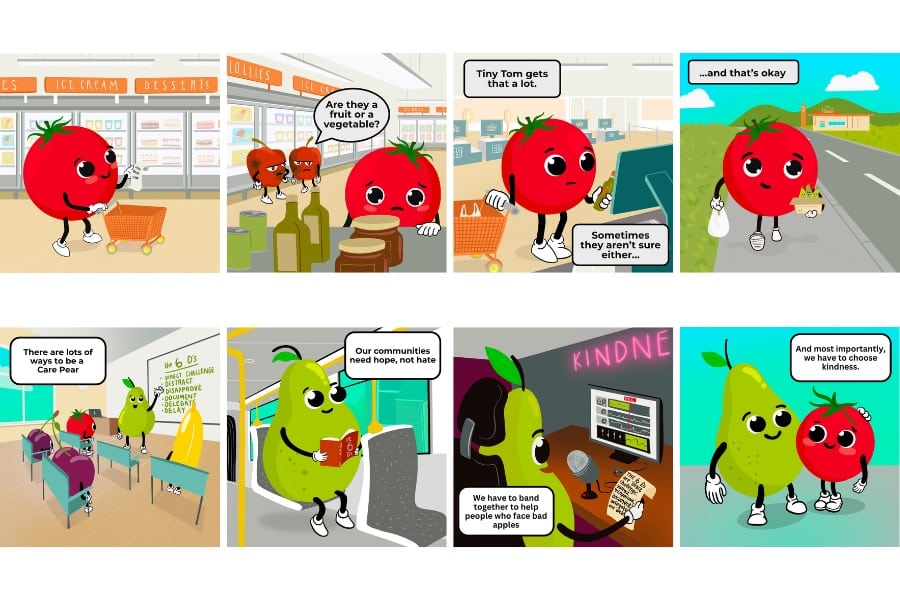Meditation can help tackle stress and anxiety, says award-winning Manchester architect
- Written by Emily Oldfield
- Last updated 8 years ago
- City of Manchester, Health & Wellbeing
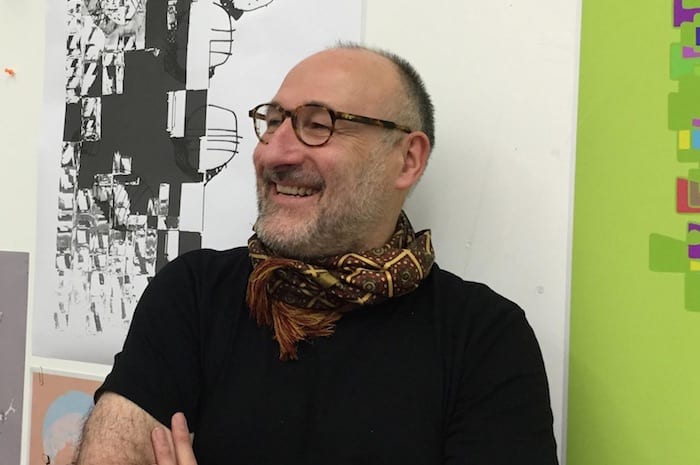
In an age of information overload and ever-increasing pressures, being caught up in cycles of negativity and stress can be common for many people. But rather than look outwards for help, you already have the keys to help yourself. Because, according to Mick Timpson, meditation offers an answer.
“You might not feel it but at your core is all the happiness you’ll ever need,” says Mick.
Mick is an award-winning architect who worked as lead designer on the grand plan to rebuild the city of Manchester after the IRA bombing.
He went onto found The YogaLife Project, a popular social enterprise that teaches yoga and meditation and is CEO of beando.
“I am an architect. The first part of my career involved empowering others to design and shape their external world. Now I am empowering people to design and shape their internal world.
“Just as there is an art and science for designing the outer world for our benefit, there is also an art and science for designing our inner world the way we want it. It’s called meditation and it comes from a very ancient science of wellbeing called yoga. When practiced thoroughly and consistently, real change is possible. We can empower our inner architect.”
But how do you access your inner architect? We asked Mick.
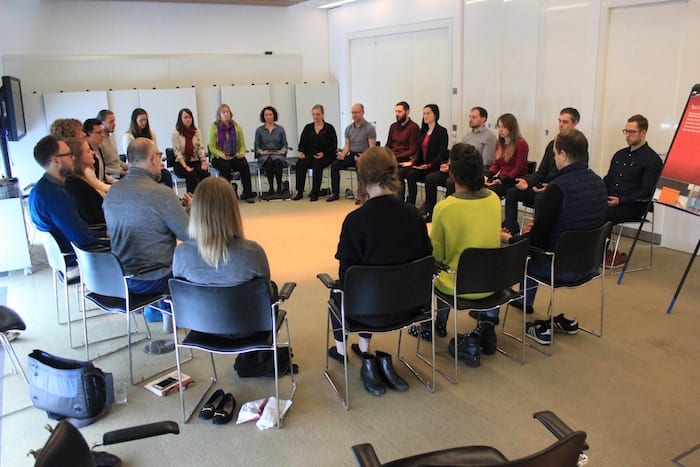
What is meditation exactly? Is it not just relaxation?
The term meditation simply means to turn up. That is, to deal with what is happening in the moment. The more scientific term is optimum present-moment awareness, which means instead of spending your time being anxious about the life you think you should be living, meditation helps you live your real life right here, right now.
Most of our stress and anxiety comes from how we think about things. We are often anxious about the future or worrying about the past. This is natural and part of our survival mechanism but for many it can be too much and we get overwhelmed by everyday life and the demands it makes.
Many people are living in a fight/flight mode which never seems to turn off. A recent report from the Mental Health Foundation tells us that 4 people out of 10 are living with some form of depression and 1 in 4 suffer from panic attacks.
There is a lot of scientific evidence now which shows that regular meditation practice works on the brain and nervous system. It can actually dial down our inbuilt negativity bias.
What are your tips for meditating in a busy city?
It’s not difficult at all. In fact, meditation seems designed for busy urban life. The meditation we teach at beanddo links together your everyday doing world to your inner being world.
Meditation practice teaches you to be aware from moment to moment. After a while you begin to notice that you are caught up in unhelpful mental patterns that affect how you experience and operate in the world.
With practice, we begin to notice that it’s not so much what you do, it’s how you do it, which is the key to meditation. Then your busy urban life will start to flow, become more effortless and joyful. So instead of dying of work we learn to thrive at work.
Do I need to commit a large amount of time to meditation or can it be integrated into my working day?
Integration is the whole point. To practice successfully you don’t need to lock yourself away or retreat to a cave in the Himalayas. Ideally, we recommend about 20 minutes twice a day before breakfast and before tea. It might seem a lot at first but you will be surprised how easy it gets. The key is to start slowly with small steps. But it doesn’t matter if you miss a day too, that’s okay.
What we do at beanddo is show you how to use meditation in everyday situations. We teach micro-meditations for when you are walking to work, sitting on the tram, waiting at the post office, attending meetings or just sitting in front of your computer. With practice, everything you do can become a meditation and you will flow through your day.
How can workplaces embrace meditation?
Lots of businesses are building workplace meditation into their working week. We’ve just completed a major 12-week meditation programme with staff at Manchester’s Museum of Science and Industry, for example. If we can get, say, 30 people meditating together just for an hour a week, that business is reaping the benefits of 30 hours of meditation every week. The impact on workplace stress and sickness can be significant. Plus, meditation brings added bonuses to the workplace, such as improved energy, creativity and collaboration which is a welcome side effect of workplace meditation.
Businesses must commit to their meditation programme though. At the moment, there is a workplace revolution going on and the best workplaces are getting it. The resilience, wellbeing and creativity of employees are the most valuable assets to 21st century business.
Do I need to be religious or have spiritual belief in order to meditate?
Absolutely not. Meditation has nothing to do with religion. Meditation comes from our oldest science of well-being – yoga. It’s thought to be well over 5,000 years old. It predates current world religions. Importantly, anyone can practice meditation no matter who they are or what they do.
The key to meditation is the knowledge that we all have an inner resource of wellbeing that we can tap into. You might not feel it but at your core is all the happiness you’ll ever need. Being happy has very little to do with external conditions. It’s an inner thing and meditation will help you access it. Meditation is sometimes referred to as ‘the art and science of living skillfully’, which is what we all want to do. Because it’s over 5,000 years old, it’s a tried and tested method. And it works for everyone.
How do I start meditating – can I start by myself?
Yes, it’s a natural, easy-to-learn technique. All it requires is a shift of attention and perspective and you will notice that the practice will have its own momentum. Meditation is a low cost, high impact way of tackling the current stress and anxiety epidemic in the UK.
Any extra advice you can give us to get started?
Come to one of our classes or get your business to sign up to our Make Happy Work modern meditation programmes.
- Give yourself a moment or two between tasks where you can just sit quietly and breathe.
- Focus on what you are doing (this takes practice) and avoid thinking about what’s coming up next.
- Let go a little and don’t think you need to somewhere different, doing something different or being someone different. You are fine just as you are right now. In fact you are perfect
- Be open, pay attention, listen and just stop and watch for a moment without expectation. It’s worth it.
At beanddo, we teach both individuals and businesses the techniques they need, including useful guides and downloads to use on the move. But it’s all down to you. For example, you can’t learn to swim from reading a book. Sooner or later you have to get into the water to know how it really works. It’s the same with meditation.
Try it. It works. And you’ll probably end up loving it.
- This article was last updated 8 years ago.
- It was first published on 11 May 2017 and is subject to be updated from time to time. Please refresh or return to see the latest version.
Did we miss something? Let us know: [email protected]
Want to be the first to receive all the latest news stories, what’s on and events from the heart of Manchester? Sign up here.
Manchester is a successful city, but many people suffer. I Love Manchester helps raise awareness and funds to help improve the lives and prospects of people across Greater Manchester – and we can’t do it without your help. So please support us with what you can so we can continue to spread the love. Thank you in advance!
An email you’ll love. Subscribe to our newsletter to get the latest news stories delivered direct to your inbox.
Got a story worth sharing?
What’s the story? We are all ears when it comes to positive news and inspiring stories. You can send story ideas to [email protected]
While we can’t guarantee to publish everything, we will always consider any enquiry or idea that promotes:
- Independent new openings
- Human interest
- Not-for-profit organisations
- Community Interest Companies (CiCs) and projects
- Charities and charitable initiatives
- Affordability and offers saving people over 20%
For anything else, don’t hesitate to get in touch with us about advertorials (from £350+VAT) and advertising opportunities: [email protected]

Will & Ralf are back! Manc comedy legends return for hilarious live tour
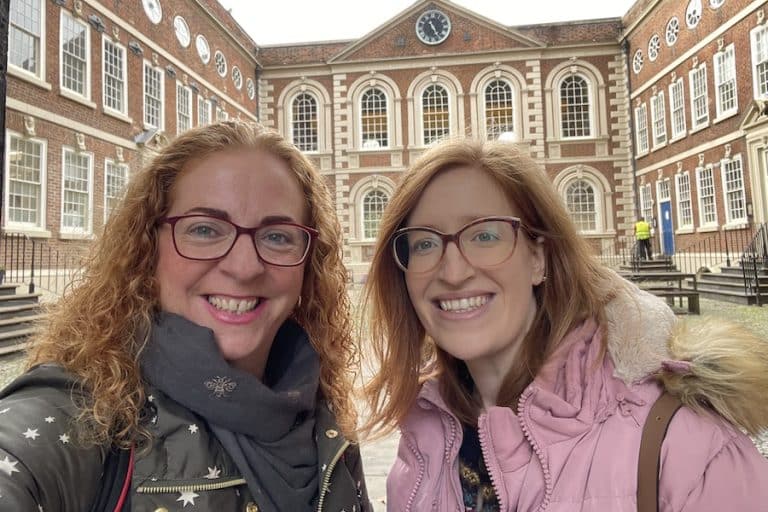
A fictional pub is bringing the stories of Irish women across the Northwest to life

From paws to applause: Could your dog be Manchester’s next big opera star?
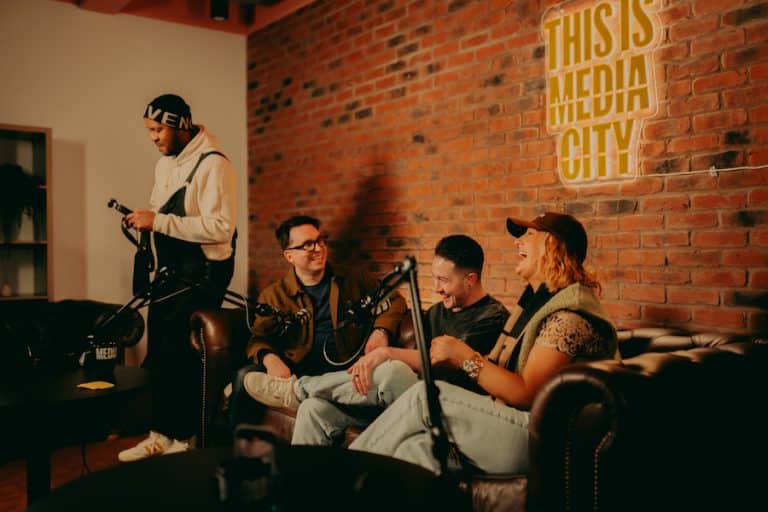
MediaCity launches the city’s largest ‘game-changing’ content creation studio

“Manchester is still the best place for a party” Graeme Park on the city’s dancefloor legacy







